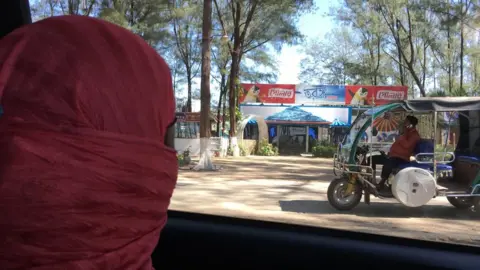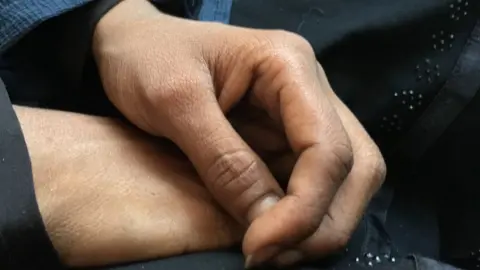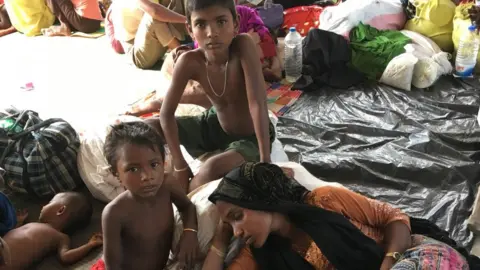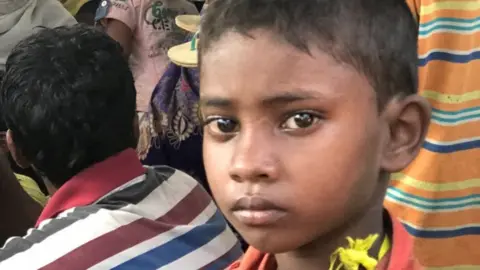Rohingya women in Bangladesh face 'forced prostitution'
 BBC
BBCThe United Nations is warning that more than half a million Rohingya refugees who have fled Rakhine since August are at risk of exploitation in Bangladesh. One woman told Nomia Iqbal, from the BBC's Newsday programme, how she had been groomed and forced into prostitution after fleeing.
With her face covered in a pink scarf, 21-year-old Halima agreed to talk to me in a private place.
"As we entered Bangladesh, we were taken to camp, where a local Bangladeshi man gave us some food," she said. "He told me he had lost his wife and he has two kids. He said he wanted to marry me."
Halima said she had believed him and had accompanied him to his house in Cox's Bazar.
"When I got to the house, I saw seven to eight young girls like me," she said. "I was scared. In this house he forced me to have sex with many men."

Halima came to Bangladesh three months ago to escape the violence in Northern Rakhine. She does not know where her family are and arrived with her neighbours.
More than half of the mainly Muslim Rohingya refugees are children - they have been escaping the violence carried out against them committed by the Myanmar army and some local Buddhist extremists.
Hamima told me she had stayed two months in the house, which was run by a Bangladeshi woman.
"I was dolled up and had this make-up on," she said. "Sometimes three to four men would come to the house in one night. It was so difficult and I would start bleeding for days."
During that time, she was not given any money, but only three meals a day.

One evening a man arrived at the house who would go on to help Halima.
"This man was a police officer who came to have sex but after hearing my story he called me 'sister'. He stayed overnight but did nothing and instead gave me his mobile phone number."
One day, Halima said, she suffered a vicious attack by the female owner of the house and was injured for 15 days.
She decided to make a plan to escape and when another man arrived to sleep with her, she used his mobile phone and contacted the policeman. He arrived with six other officers at midnight.
"He rescued me and six other girls," she said. "He said 'you're free now'."

But Halima found herself staying in Cox's Bazar because she did not know anywhere else in Bangladesh.
Now penniless, she says she has no choice but to be a prostitute.
She stays in a place with another woman who does similar work and says food and help are provided every now and again.
For young Halima, this is clearly not the life she expected after fleeing across the border for safety.
"I want to go back to praying five times a day, having meals with my family," she said. "I want the life I had before with my family in Myanmar."
The Bangladeshi government says aid agencies are doing all they can to protect vulnerable people.
The UN has also said it is focusing on specific activities to tackle the problem, including funding an initiative which involves Rohingya refugees using microphones inside the camps, to announce the names of children when they go missing.
"I am worried about two sets of risk," the UN's High Commissioner for Refugees, Fillipo Grandi, said.
"One is exploitation, including sexual exploitation, when people come with nothing. They are extremely vulnerable to this. "The other feature of this particular crisis is trauma that people carry with them."
The scale of the problem is staggering.
